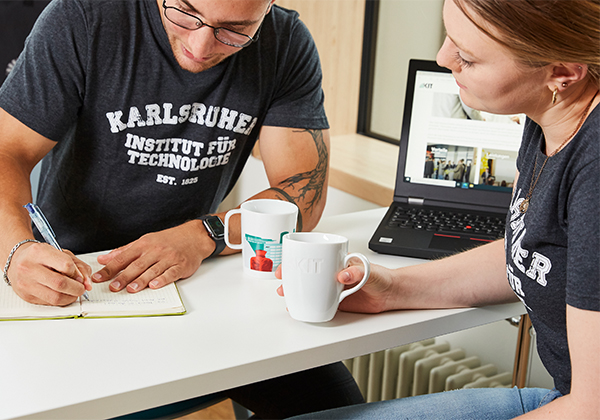KIT Graduate School „Enabling Net Zero“ (ENZo)
Transfer: Putting energy research into practice
This is what it's all about
In order to combat climate change and advance the urgent energy transition, KIT provides students and doctoral candidates with exceptional educational and research opportunities. The ENZo graduate school further expands these offerings by providing doctoral candidates with comprehensive training in energy research. The program aims to improve understanding of the complex energy system's interrelationships and influencing factors. There is a particular focus on transferring research results into practice. Through a transfer project, doctoral students can implement their own ideas and ensure that scientific findings and technical solutions provide real social benefits.
What we want to achieve
Our goal is to prepare doctoral students for their future careers in the highly dynamic energy industry and research environment. To this end, ENZo aims to provide doctoral students with the interdisciplinary knowledge and practical skills necessary for application-oriented projects. In the "Real World Projects" (RWPs), students work independently and creatively in self-organized, interdisciplinary small groups on individual projects. The focus is on transfer, whether technical or knowledge to society. The RWPs promote technical skills in the energy sector as well as interdisciplinary skills, such as project management, customer orientation, and interdisciplinary collaboration. The RWPs also strengthen the network of ENZo members across disciplinary boundaries, creating a stable community that lasts well beyond the doctoral period.
What we already achieved
Since the launch of the first "Real World Project" in early 2023, various teams have achieved or are working on remarkable results. These include the energy transition game WattsNext, the direct air capture demonstrator Sparkling DAC, and the RetroShift retrofit kit for load shifting in old devices.
Further Information
Facts and figures
Funding required:
For each project cycle (approximately every 10-12 months), there is funding available for follow-up for doctoral students in the amount of €80-100k.
Grants for stays abroad and further training are available in any amount.
Existing funding partnerships:
- KSB foundation and Robert Bosch GmbH
Project responsibility KIT:
Scientific spokesperson: Prof. Jörg Sauer, PhD; Managing Director: Heike Kull




